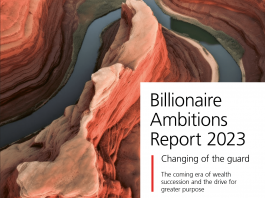
Do you remember the collapse of Lehman Brothers Holdings Inc. back in September 2008? The following global financial crisis is still fresh in the minds of many and on the balance sheets of even more.
Now, a fresh threat to your finances is on the horizon. A U.S. government default could be just weeks away, if the Congress fails to raise the debt ceiling as it now threatens to do. Such action, or a lack of action, certainly will be an economic disaster like none the world has ever seen.
Failure by the world’s largest borrower to pay its debt will devastate stock markets across the globe. It will halt a $5 trillion lending mechanism for investors who rely on Treasuries, increase borrowing costs for millions of people and companies, ravage the dollar and throw the U.S. and world economies into a recession that probably would become a depression.
Such a scenario may seem as impossible in modern history, but Lehman Brothers collapse was also unprecedented and it materialized!
The current $12 trillion of outstanding government debt is 23 times the $517 billion Lehman owed when it filed for bankruptcy about five years ago. Financial analysts warn that going over the edge would be catastrophic!
One would expect a series of legal triggers, potentially transmitting the default to many other markets. It would add to the pressures facing global economic growth. It would also undermine the role of the U.S. and the dollar as currency in the global economy.
The U.S. stock market lost almost half its value in the five months following Lehman’s failure in 2008, taking the global economy down with it. Financial markets and real estate markets suffered most, overturning investors fortunes into misfortunes overnight. Dubai and the Gulf markets lost even more at the time, with some stocks depreciating by as much as 80%. The property prices tumbled by over 60%.
Back in 2008, the long-term consequences of the financial crisis were prevented only by the unprecedented actions of the US Federal Reserve, which pumped $3 trillion into the financial system and continues to aid the country’s economy until today.
However, a potential U.S. government default was last week described “like nuclear bomb, basically too horrible to use,” by Warren Buffett.
The chances of the world’s largest economy to default now are higher than in the past.
Financial markets are all confidence-based. If that confidence is shaken, a disaster might unfold in no time. A broad ratings downgrades to default would cause investors and structured vehicles to trade out portfolios. Once the system starts to break down related to settlement and payments, then liquidity disappears. Such issues are not limited to a country’s borders, but can be transmitted in a matter of minutes to financial markets across the continents.
If liquidity dries up, a higher borrowing costs could slow the property industry. If a 25-year mortgage rates climb to 6.5 percent from 4.5 percent, a borrower who can now afford the monthly payment on a $300,000 loan would only be able to take a portion of debt when buying a property, forcing down sale prices.
A U.S. government default could be very bad for affordability and for consumer confidence.
Banks would have to write down securities on their books that are losing value and face capital shortfalls. Governments may not have the cash to rescue some banks.
About half of the U.S. debt is held by foreign governments, central banks and other overseas investors. A default would throw those holdings into question as well as the dollar’s status as the world’s reserve currency.
China is the largest holder of U.S. Treasuries, with $1.3 trillion reported in July. Japan follows with $1.1 trillion. The damage to foreign markets could be devastating.
U.S. stocks fell 7 percent in one day back in 2008 when the Congress rejected the government’s bank-rescue package, before passing it a few days later. The market shocks would be enough to tip the U.S. back into recession and drag the world economy down.
Some banks in the U.S. are reportedly preparing contingency plans for a possible government default, such as stocking retail branches with more cash, the New York Times said.
What would happen if there would be a default is hard to predict, because in reality there was no default of such proportion until now.












